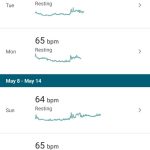Discover “What Is 30 Day Hard A Beginners Guide to 30 Days of Grit” and how physical fitness drives mental growth. Unlock resilience, focus, and personal development.
The Mind-Body Connection
At the heart of the relationship between physical fitness and mental growth lies the mind-body connection. The human body and mind are deeply intertwined, with physical activity influencing mental processes and vice versa. When the body engages in exercise, it stimulates the release of neurotransmitters like endorphins, serotonin, and dopamine—chemicals that play a crucial role in regulating mood, reducing stress, and promoting feelings of happiness and well-being. This biochemical response not only boosts mood but also enhances cognitive functions such as memory, concentration, and problem-solving. Over time, regular physical activity helps establish a robust neural foundation, increasing the brain’s capacity to process information and tackle challenges.
Building Resilience Through Physical Challenges
Physical fitness is a journey that inherently involves pushing the body to its limits, whether it’s running a marathon, lifting weights, or mastering a yoga pose. Each time an individual faces a physical challenge, it builds resilience. This ability to endure physical discomfort and persist through challenges is directly transferable to mental toughness. When a person regularly confronts and overcomes physical obstacles, they develop a mindset that embraces difficulty rather than shying away from it. This resilience can then be applied to mental challenges, fostering a mindset that is determined, focused, and adaptable in the face of adversity.

Cognitive Function and Mental Clarity
One of the lesser-discussed but vital aspects of physical fitness is its direct impact on cognitive function. Regular exercise increases blood flow to the brain, delivering more oxygen and nutrients to support brain activity. This enhanced circulation improves the brain’s ability to process information, sharpen focus, and boost memory retention. Furthermore, studies have shown that aerobic exercises like running or swimming stimulate the growth of new brain cells in the hippocampus, a region of the brain crucial for memory and learning. By strengthening the body, you create an environment where mental clarity and cognitive flexibility thrive.
Emotional Stability Through Exercise
The emotional benefits of physical fitness are equally important in the context of mental growth. Exercise provides a natural outlet for stress, anxiety, and frustration, acting as a form of emotional regulation. Whether through the rhythmic motion of running, the calming flow of yoga, or the intensity of a high-intensity workout, physical activity helps to regulate emotional states, fostering a sense of control and equilibrium. Consistent physical exercise has been shown to reduce the symptoms of depression and anxiety, making it a powerful tool in maintaining emotional well-being. By improving mood and offering an outlet for pent-up emotions, physical fitness helps individuals approach life’s challenges with a calmer, more balanced perspective.
Goal Setting and Mental Discipline
Fitness routines often require setting specific, measurable goals—whether it’s increasing the number of push-ups or achieving a personal best in running. This process of setting goals, tracking progress, and achieving success builds mental discipline. Goal setting encourages individuals to focus on long-term rewards rather than short-term gratification. The consistency required to improve physical performance translates into mental habits that promote focus, determination, and perseverance. This discipline learned in the gym or on the track carries over into other aspects of life, helping individuals navigate obstacles with a sense of purpose and drive.

The Role of Rest and Recovery in Mental Health
Physical fitness also emphasizes the importance of rest and recovery, which is often overlooked but is equally important for mental growth. Rest allows the body to heal, but it also provides an opportunity for the mind to reset. Sleep, in particular, is a crucial element in both physical recovery and mental clarity. During deep sleep, the brain consolidates memories, processes emotions, and rejuvenates its cognitive functions. Without proper recovery, the brain becomes sluggish, and mental fatigue sets in. Therefore, balancing physical exertion with adequate rest is essential not only for muscle recovery but also for maintaining mental acuity and emotional stability.
The Power of Mindfulness and Meditation in Fitness
Incorporating mindfulness and meditation into fitness routines offers profound mental growth benefits. Practices like yoga and Pilates encourage mindfulness by requiring focus on breath and movement, which has been shown to reduce stress and enhance mental clarity. Meditation, when combined with physical activity, helps strengthen the connection between body and mind, allowing individuals to become more present in the moment. This mindfulness approach can lead to better emotional regulation, reduced stress levels, and a more balanced mental state. The integration of mental awareness into physical fitness deepens the benefits of both, creating a holistic approach to personal development.
Increased Confidence and Self-Esteem
As physical fitness leads to visible improvements in strength, endurance, and appearance, it naturally boosts confidence and self-esteem. Achieving fitness goals provides a sense of accomplishment and empowerment, reinforcing the belief in one’s ability to succeed. This confidence extends beyond the gym, positively influencing other areas of life, such as work, relationships, and personal endeavors. When individuals feel physically strong and capable, they are more likely to take on new challenges, approach situations with confidence, and maintain a positive outlook, all of which contribute to mental growth.
Creating Healthy Habits for a Thriving Mind
Finally, physical fitness fosters the creation of healthy habits that contribute to a thriving mind. Regular exercise not only improves physical health but also encourages individuals to make other positive lifestyle choices, such as eating nutritious foods, getting adequate sleep, and managing stress effectively. These healthy habits, when combined, create a foundation for mental well-being, as a balanced lifestyle enhances cognitive function, emotional stability, and overall life satisfaction. By committing to physical fitness, individuals set the stage for a life marked by mental clarity, resilience, and personal growth.
Conclusion
Physical fitness is far more than just a means to achieve a healthy body; it is a fundamental cornerstone for mental growth. Through the power of exercise, individuals enhance their cognitive functions, build emotional stability, develop mental resilience, and increase their self-esteem. The journey toward physical fitness is inherently a journey toward mental development, as the two are inextricably linked. Embracing physical fitness as a foundation for mental growth creates a virtuous cycle that not only improves the body but also strengthens the mind, laying the groundwork for a more fulfilling and balanced life.
FAQ
What is the 30 Day Hard challenge and how does it work?
The 30-day Hard challenge is a mental and physical commitment that requires participants to complete a series of daily tasks for 30 consecutive days. These tasks typically include intense physical exercise, strict dietary control, and adherence to daily habits such as journaling or hydration. It aims to push individuals beyond their comfort zone to build resilience and mental toughness.
What are the key principles behind the 30-Day Hard Challenge?
The key principles of the 30-Day Hard Challenge include discipline, consistency, and mental fortitude. Participants commit to following a strict set of daily tasks, with no room for excuses or exceptions. It focuses on developing habits that promote physical health, mental clarity, and personal growth.
How do I prepare mentally and physically for the 30 Day Hard challenge?
Preparation for the 30-Day Hard challenge begins with setting clear, achievable goals and mentally committing to completing the challenge. Physically, it’s important to assess your current fitness level and gradually increase intensity if necessary. Building a routine that includes proper nutrition, hydration, and sleep will support the challenge.
What are the benefits of completing 30 days of hard discipline?
Completing 30 days of hard discipline can lead to improved physical fitness, better mental clarity, and a significant boost in confidence. It also fosters a sense of accountability and responsibility, strengthens perseverance, and helps individuals form healthy, sustainable habits.
Can beginners complete the 30-day Hard challenge?
Yes, beginners can complete the challenge, but it requires preparation and realistic goal setting. Starting with a manageable level of physical activity and gradually increasing intensity is key. Additionally, beginners should focus on consistency and motivation to help them stay on track.
What activities are included in the 30-Day Hard challenge?
The activities typically involve intense physical exercise, a strict diet plan (usually focusing on healthy eating), daily journaling, and drinking plenty of water. These tasks are designed to challenge the body and mind in different ways, ensuring holistic growth.
How do I stay motivated throughout the 30-Day Hard challenge?
To stay motivated, it’s helpful to break the challenge into smaller milestones and celebrate each achievement. Keeping a daily journal of your progress, surrounding yourself with supportive individuals, and reminding yourself of the long-term benefits can also help maintain motivation.
What should I do if I fail a day during the 30-day Hard challenge?
If you fail a day, it’s important to acknowledge the setback, learn from it, and get back on track the following day. The key is not to let one failure derail the entire challenge. Many people choose to start over from day one, as the challenge is about consistency and resilience rather than perfection.




